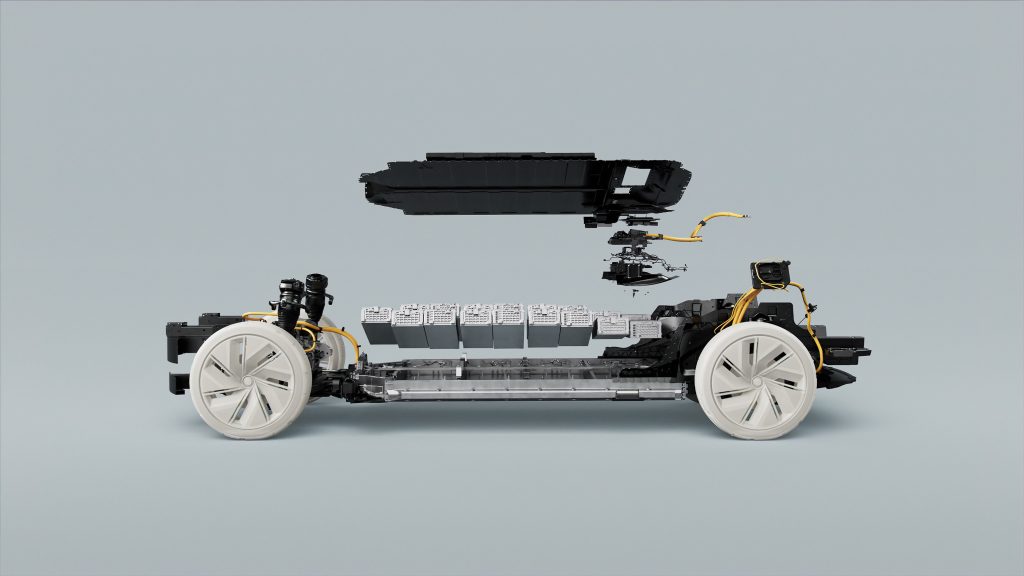Last updated on June 1st, 2022 at 11:46 pm
One of the reasons why people are often concerned about their EV batteries needing replacement is that they are used to smartphone batteries starting to deplete seriously after 2-3 years.
But bear in mind that you tend to charge your smartphone every day. This is not the case with EVs. If you do the UK average 7,000 miles a year, and your car has a 200-mile real-world range, you will only need to charge it 35 times in the year, or less frequently than every 10 days.
In other words, you will be charging your EV ten times less frequently than your smartphone. This doesn't mean it will last ten times longer, but it will last much more than the 2-3 years of a smartphone.
Unlike your smartphone's battery, manufacturers design electric vehicle (EV) energy systems to last. So, you might find yourself changing the car before its battery needs replacement.
Despite comprehensive data on EV battery longevity not being available yet, due to the majority of electric cars being much less than 10 years old, according to the U.S. Department of Energy (DOE), “the batteries in electric-drive vehicles are generally designed to last for the expected lifetime of the vehicle”.
Let's test that statement.
The latest data from IBISWorld shows that the average age of vehicles in the United Kingdom in 2022 is 9.1 years, representing an increase at a compound annual rate of 1.4% between 2017 – 2022.
In the United States, the statistical number is significantly higher. IHS Markit reports the average age of light vehicles in operation in the U.S. has risen to 12.1 years in 2021.
Both reports underlined the impact of COVID-19 that led to drivers holding on more to their old cars, hinting that vehicle age might go down again in the future.
Bearing the average car age in mind, consider that most EV producers offer eight-year or 100,000-mile warranties for their batteries, usually for a 70% capacity. This implies the expected minimum ‘cycle life', and manufacturers would not be offering a warranty at this level if they expected many replacements to be required.
Nevertheless, the DOE highlights that the cost of battery replacement outside the contract could be a “significant expense”. Let's look a bit deeper at that.
Lithium-ion Technology
Most of today's EVs and plug-in hybrid EVs use lithium-ion batteriess. Manufacturers favour this technology’s high power-to-weight ratio, high energy efficiency, good high-temperature performance, and low self-discharge.
But the cost of lithium-ion batteries has plummeted dramatically. Bloomberg New Energy Finance's (BNEF) annual battery price survey in 2021 showed lithium-ion battery pack prices averaged $132 per kilowatt-hour (kWh). The price was $917 per kWh just a decade ago.
BNEF also predicts that by 2024, average pack prices may be lower than $100 per kWh. This price range will allow “automakers to produce and sell mass-market EVs at the same price as comparable internal combustion vehicles in some markets”.
According to the Allied Market Research, the lithium-ion battery market size will reach $100bn by 2025. The International Energy Agency reports that China dominates the market with over 70 per cent of global cell production capacity. The country also produces about half of all batteries for light-duty vehicles.
Leading players have invested a vast amount of money in improving the quality of lithium-ion batteries while reducing the production cost, and the larger the market, the cheaper these batteries will be.
The European Commission approved €2.9bn public support for the “European battery Innovation” project in early 2021. Then the U.S. announced the $209 million supporting research fund later the same year. So there is lots of money being invested in this area. Developments like Lithium Sulfur batteries are promising even cheaper batteries with much higher density in the near future.
It is safe to say that battery replacement might be one of the last things you should worry about when buying an electric vehicle. And even if you are unlucky, future batteries will be a lot cheaper and higher capacity.
